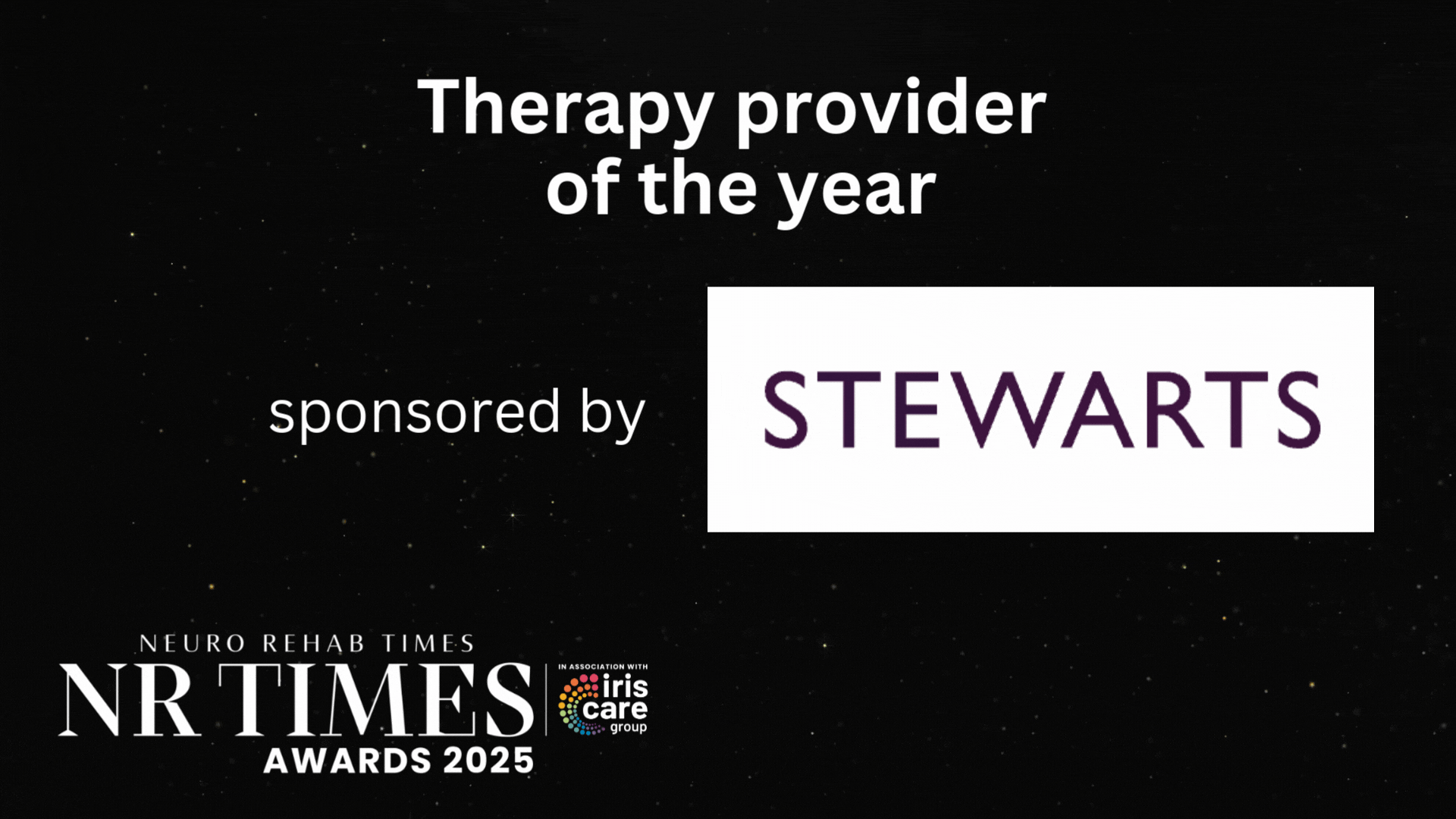Learning to talk again: A story of aphasia recovery in encephalitis

By Lucy Babbs, speech and language therapist, Ascot Rehab
When 56-year-old Bernard* arrived at the Ascot Rehabilitation centre in Streatham, London, he was facing one of the biggest challenges of his life: rebuilding his ability to communicate.
A fit and energetic man, Bernard had been thriving in an executive role and busy with family life when he developed sudden confusion and speech difficulties and was hospitalised.
Doctors soon confirmed the cause – herpes simplex virus encephalitis, a rare but serious infection that causes inflammation and damage to the brain.
For Bernard, the aftermath included aphasia, a disorder in the processing of language that affects speaking, understanding, reading and writing.
Aphasia, for which speech and language therapy is the primary treatment, ranges from mild difficulty thinking of the right word or understanding a lengthy news article, to not being able to say or write down one’s own name.
In Bernard’s case, it robbed him of the effortless, sophisticated communication that was integral to his professional and family life.
A Period of Assessment
After five weeks in an acute hospital, Bernard was transferred to Ascot Rehab for eight weeks of intensive, multidisciplinary rehabilitation in the areas of language, cognition, fatigue, exercise tolerance and community mobility.
The centre’s Speech and Language Therapy team (SLT) carried out detailed assessment of his communication using internationally recognised tools such as the Comprehensive Aphasia Test (CAT) and Psycholinguistic Assessments of Language Processing in Aphasia (PALPA).
His family were also consulted to explore how Bernard’s communication had changed compared to before his illness and how this was affecting family conversations.
The results showed that Bernard’s main challenges lay in spoken expression.
Everyday conversation was fluent but often tangential, vague, and punctuated with pauses, invented words, and substituted words.
He also struggled to name everyday items on the spot and recall familiar vocabulary including his children’s names and train stations on his daily commute.
Writing was also affected, with Bernard often misspelling or missing out the middle section of words. Fortunately, his understanding of spoken and written information was comparatively preserved.
Bernard had good awareness of his difficulties, however this took a toll on his confidence and wellbeing.
He described avoiding communication with some friends and colleagues, being uncertain that his family understood him, and feeling deeply worried about his future at work.
Tailored Therapy
Bernard received eight weeks of daily therapy sessions, supported by structured “homework” tasks in between.
Rehabilitation was about much more than just working on words in a quiet therapy room; it targeted both the mechanics of language and the practical, real-world skills Bernard needed to return to work and family life.
Therapy approaches were guided by research evidence and tailored to Bernard’s priorities and interests to ensure care was holistic. Approaches included:
- Semantic Feature Analysis – Exploring meaning-based properties of words to strengthen semantic networks within the brain and help with faster word retrieval.
- Anagram and Copy Treatment – Rearranging letter tiles into target words then copying them repeatedly.
- Tactus Language Therapy – An interactive app of therapy exercises for independent practice outside of sessions.
- Total Communication – Using all forms of communication to get a message across, including gesture, pointing, pictures and facial expression.
- Vocabulary drills – Repeatedly memorising and saying words that really matter to the person, such as names of children or vocabulary related to work.
- Compensatory strategies – Training in the use of circumlocution or assistive technology such as predictive text or spell check functions.
Therapy sessions initially took place in therapy rooms before moving into public spaces such as cafes or parks, to replicate the real world and prepare Bernard for the practical challenges of returning to daily life.
What made Bernard’s therapy unique was how tried-and-tested aphasia approaches were woven together with physical rehabilitation.
The SLT team worked closely with physiotherapy colleagues to introduce dual-task training — for example, asking Bernard to practise naming objects while balancing or walking on the treadmill.
This approach not only played to Bernard’s love of physical fitness, keeping him engaged and motivated, but also reflected the growing body of research, and the National Clinical Guidelines for Rehabilitation
Following Acquired Brain Injury, which highlight the value of cognitive–motor integration.
This best-practice principle cannot be easily implemented in every setting, but in Bernard’s case, it became a defining feature of his progress at Ascot Rehab.
Remarkable Progress
Bernard showed marked improvements in his conversational speech over the course of his admission and scored higher across all repeated assessments.
By discharge he could recall all personally relevant vocabulary without support, hold complex conversations with only occasional word-finding slips, and use taught compensatory strategies with confidence.
Importantly, he was once again joining family gatherings, reconnecting with friends and colleagues, and even switching comfortably between his three languages in group conversations.
Looking Ahead
In August Bernard left Ascot Rehabilitation centre ready to resume his life.
He chose not to continue formal therapy immediately, preferring instead to focus on reintegration at home and at work.
However, he remained open to returning to the centre for outpatient therapy if challenges resurfaced.
Bernard’s story is a testament to the power of intensive, individualised, and multi-disciplinary rehabilitation, and the resilience of people living with aphasia.
With the right support, recovery doesn’t just mean regaining words – it means regaining confidence, relationships, and identity.
*Patient’s name has been changed to maintain confidentiality.
For more information about the neurorehabilitation offered at Ascot Rehab, please visit their website: https://www.ascotrehab.com










